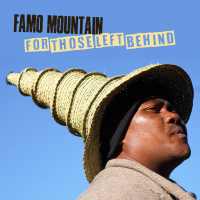
|
-
Famo Mountain's For Those Left Behind was recorded in the Lesotho highlands. Lesotho, a rugged, often cold country entirely surrounded by South Africa, not surprisingly shares some sonic connections to its only neighbor. In fact, South Africa's concertina-aka squashbox- traditions have been well documented on a number of releases, so it's not surprising that some form of the instrument would also exist in Lesotho. The group features the accordion along several drummers and singers, but also makes room for the thomo, a one-stringed gourd instrument that is undoubtedly the predecessor of the Brazilian berimbau.
The reason for this recording dates to news reports of violence among gangs who see the accordion-based spontaneous rap as a weapon... Much like Chicago Drill's connection to gang violence in a city whose increasing unaffordability due to gentrification has continued to segregate groups along racial and economic lines, the Famo Wars have pitted musicians into warring camps. So, a country of 2 million with some of the most breathtaking landscape on the planet finds distinct, often opposing groups using music based on an instrument German colonizers introduced to the region over a century ago to speak about injustice. And the song titles here reflect this. Read Bruce Miller's full review and listen to some tracks in RootsWorld.
|
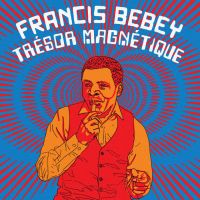
|
-
Though Camerounian musical innovator, writer, and musicologist Francis Bebey passed some 24 years ago, a variety of recent reissues are not only keeping his name very much in the present, they also show how radically innovative he was. Playful, irreverent, and often downright strange, he made music that defied trends. He created experiments for sanza, pitted traditional instruments against drum machines and other electronics, and often sang or spoke in the dueling languages of the country's former colonizers, the French and the British, sometimes in the same track. A new collection, Trésor Magnétique, continues to show how far outside of any existing sub-Saharan African styles Bebey worked.
Read Bruce Miller's review and listen to some of his music.
|
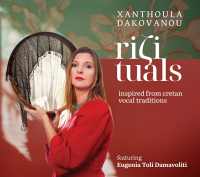
|
-
Giorgios Zacharioudakis’s opening of the first track of Rizituals, “Ilie mou,” on the Indian flute bansuri, accompanied by cello, has a rich soaring breathiness that evokes Bulgarian kaval, as indeed does the modality of the melody. But this, like all the material on this album by Greek singer Xanthoula Dakovanou, is a song from Crete. Nearly all are from the western part of the island, from the tradition known as rizitika, in which the songs are sung in acapella unison by a male vocal group. But Dakovanou, who is originally from Athens and lived for several years in western Crete, wanted to bring a different approach to the material, to have them sung by a woman, in fact two women; she’s joined by another very fine singer, Cretan Eugenia Toli-Damavoliti. All the songs she’s chosen are about women and their various roles in what is an historically patriarchal society. And whereas the traditional way for rizitika is unaccompanied, there’s a team of top-class players of traditional and other wind, string and percussion instruments. Read Andrew Cronshaw's review and hear some of the music.
Read Andrew Cronshaw's review and hear some of the music.
|
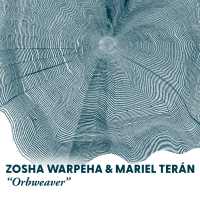
|
-
Coming a year after Zosha Warpeha's debut release, Orbweaver is a duet recording with Mariel Terán, who plays a variety of Andean flutes and percussion. While there is a distinct musical idea contained within each track here, there is a greater degree of free improvisation than there was on Silver Dawn with a sense of an exploratory conversation going on between the two musicians to which we are being invited to eavesdrop.
The improvised dialogue heard on Orbweaver doesn't follow the model of improvisation found in most jazz, blues and certainly a good deal of roots music. These pieces are not variations on an established melody to be returned to, but investigative journeys.
Read Mike Adcock's review and hear some of the music.
|

|
-
For as long as mid-20th century recordings from Africa have been available, there have been hints of South Africa’s acoustic guitar scene’s power. The Original Music label’s Siya Hamba! had two examples of the style. Topic Records’ 2003 collection, Gumboot Guitar featured two tracks by solo guitarist Albert Nene that bordered on the avant-garde. 78 RPM archivists Jonathan Ward and Pat Conte have sprinkled their respective collections with riveting examples. Opika Pende and The Secret Museum of Mankind with some riveting examples of South African acoustic guitar playing.
Considering how many single and various artists’ collections exist of African acoustic guitar playing from Kenya, Tanzania, and the DRC, a collection devoted to Zulu guitar seems criminally overdue. And Matsuli’s 25-track LP, Zulu Guitar Blues: Cowboys, Troubadours, and Jilted Lovers 1950-65, is as stylistically thorough as it is excellent. Proto-mbaqanga jive, slide guitar-driven swing, single chord drones, and much else can be heard here, all of it buzzing with life.
Bruce Miller shares some great examples in his review.
|
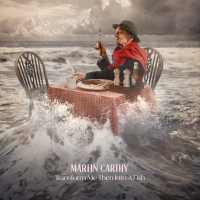
|
-
Sixty years ago, a young man named Martin Carthy released his self-titled debut LP. It was a revelation, a bombshell in the folk revival. Not just for his idiosyncratic guitar playing, sounding like no-one else on the scene. Nor for his remarkable research into the songs and their history. As much as anything, it was his choice of material. Six decades on, they’re all familiar, a part of the canon. But back then they were dusty, forgotten gems. He brought them into the light and burnished them... It was the first step in a glittering career he probably never envisioned back when England was just beginning to swing, and folk music was veering towards the margins.
Released on his 84th birthday, Transform Me Then Into A Fish isn’t a straightforward revisiting of that beginning; there are some pieces missing and others added. But these are songs viewed through the lens of time and experience, sung countless times. They’ve changed in his hands, and he’s not the same person who first recorded them. Think of it as coming full circle, and aged 84, quite possibly his last album.
|

|
-
Viva DIY. Sometimes you hear something, and it sounds like it was tailor made just for you. Hirsute Farfelus feels like that to me, and to any eco-obsessed fan of shoestring Utopian art projects with lyrical, improvisational, experimental bends. The ground rules for this one run thusly: The music must swing, the instrumentation be melodic and clever, and the titles witty, pun filled and guffaw-worthy. And it must be international, with a polyglot joy. Tako Taki skews Asian /French with smatterings of other references from just about everywhere. And they do it all on homemade musical instruments and costumes, made from detritus and off-cuts, standing at their stations like an Asian-inflected DEVO, in matching giant hats and totally into the groove.
Martha Willette Lewis takes you into a place where society's debris meets art and music.
|

|
-
Because West Africa was crawling with bands who could play Cuban music, and also because Gnonnas Pedro had been a serious student of the Cuban son prior to forming the Dadjes, it’ll come as no surprise that much of what’s on Roi De L'Agbadja Moderne 1974-1983 is radically Latin-inspired... But Pedro’s own compositions, as well as Beninese rhythms, such as agbadja, are here too.
Read Bruce Miller's review and hear some of the music.
|
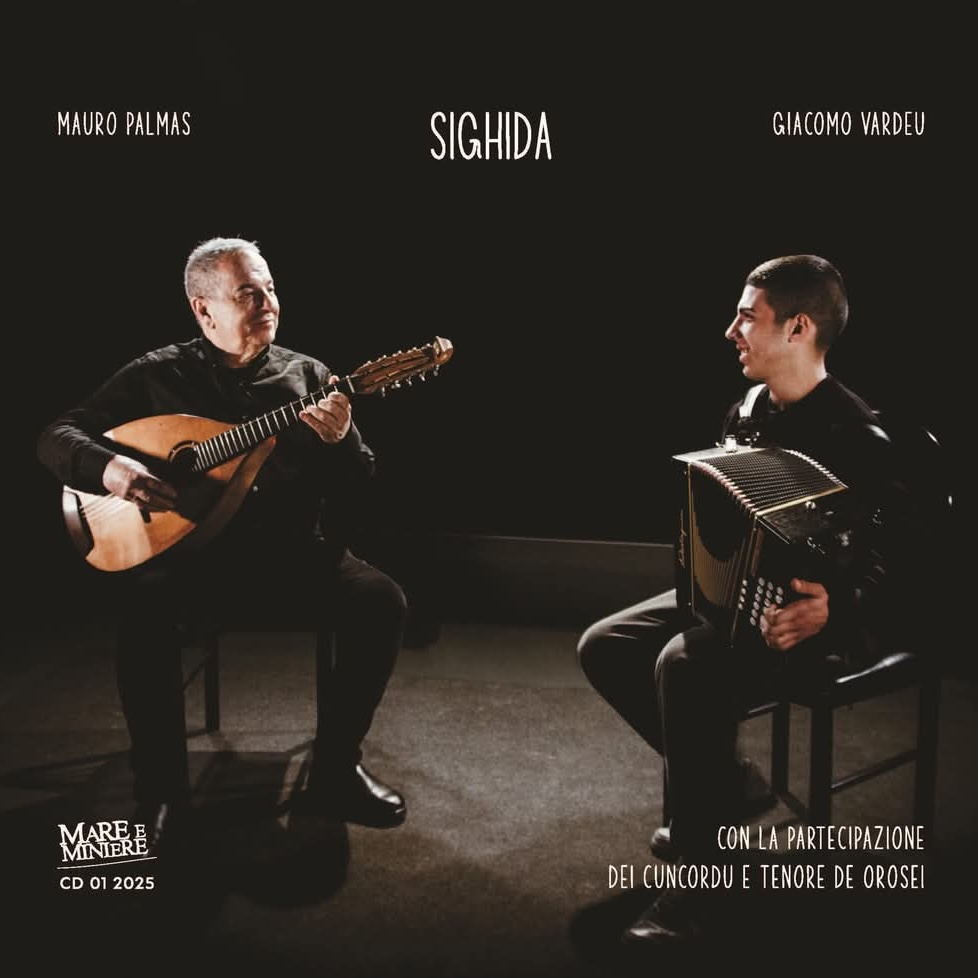
|
-
Sardinian liuto cantabile and mandola player Mauro Palmas is a composer, festival director, long-time collaborator with Sardinian singer Elena Ledda, and accompanist to Luigi Lai, the maestro of Sardinia’s extraordinary multi-reed launeddas.
He has made a string of solo albums, but Sighida is his first with 19-year-old Sardinian diatonic accordionist Giacomo Vardeu. Not only does Vardeu bring very fine playing, with noticeable and avowed influence from the skipping staccato of Basque trikitixa style, but his remarkable vocal on one track, “Paghe,” is a standout. There are also two tracks where they’re joined by the glorious grainy vocals of traditional Sardinian vocal ensemble Cuncordu e Tenore di Orosei. Read Andrew Cronshaw's review and hear some of the music.
|
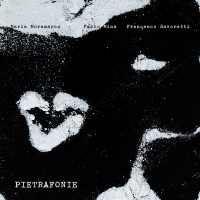
|
-
Joining with the duo of Fabio Mina and Francesco Savoretti, with Pietrafonie, Italian singer and folklorist Maria Moramarco offers up something drastically different from the pared-to-the-bone songs that made up her last release. Working with flautist Mina and percussionist Savoretti, who also employ an arsenal to electronics and ambient recordings to help create their soundscapes, Moramarco quickly stakes out her territory in the soaring rawness of the opener, “Pietra A Pietra" (Stone to Stone) with its drifting, low-key accompaniment that highlights the dry dustiness in her voice of her native Alta Murgia (in the boot of Italy) in her voice, as the soft trumpet of guest Markus Stockhausen flows in and out of the music like a distant sound carried on the breeze.
Chris Nickson explores the rich layers of this music.
|
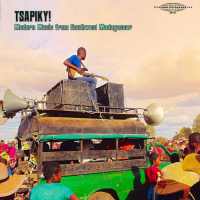
|
-
In the south-west of Madagascar, around the town of Toliara, there is a fast, spiky dance music known as tsapiky (pronounced 'tsa-peek'). Played at celebrations and ceremonies such as weddings, funerals and circumcisions, it's typically amplified through Tannoy-type grey-painted horns hung in the trees. Tsapiky! Modern Music From South-West Madagascar is recorded in that sort of situation, the sound taken from those tinny-sounding overdriven horns.
Turn your speakers up loud while you read Andrew Cronshaw's review.
|
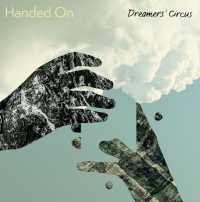
|
-
From their small beginnings, meeting at a Copenhagen festival in 2009, the Danish trio of Ale Carr, Nikolaj Busk and Rune Tonsgaard Sørensen - Dreamers Circus - has built up an impressive global following – certainly large for a band that makes instrumental music with its feet firmly planted in the Danish folk tradition. They regularly tour places as far apart as Japan and the United States and have quite a devoted online following. For this new album, they’ve looked back a short way - to the pandemic. Then, unable to play shows, they composed, calling the collection of tunes Handed On and eventually going into the studio to record a few of the 58 pieces they’d written, plus a couple that look much further back in time.
Chris Nickson reviews.
|
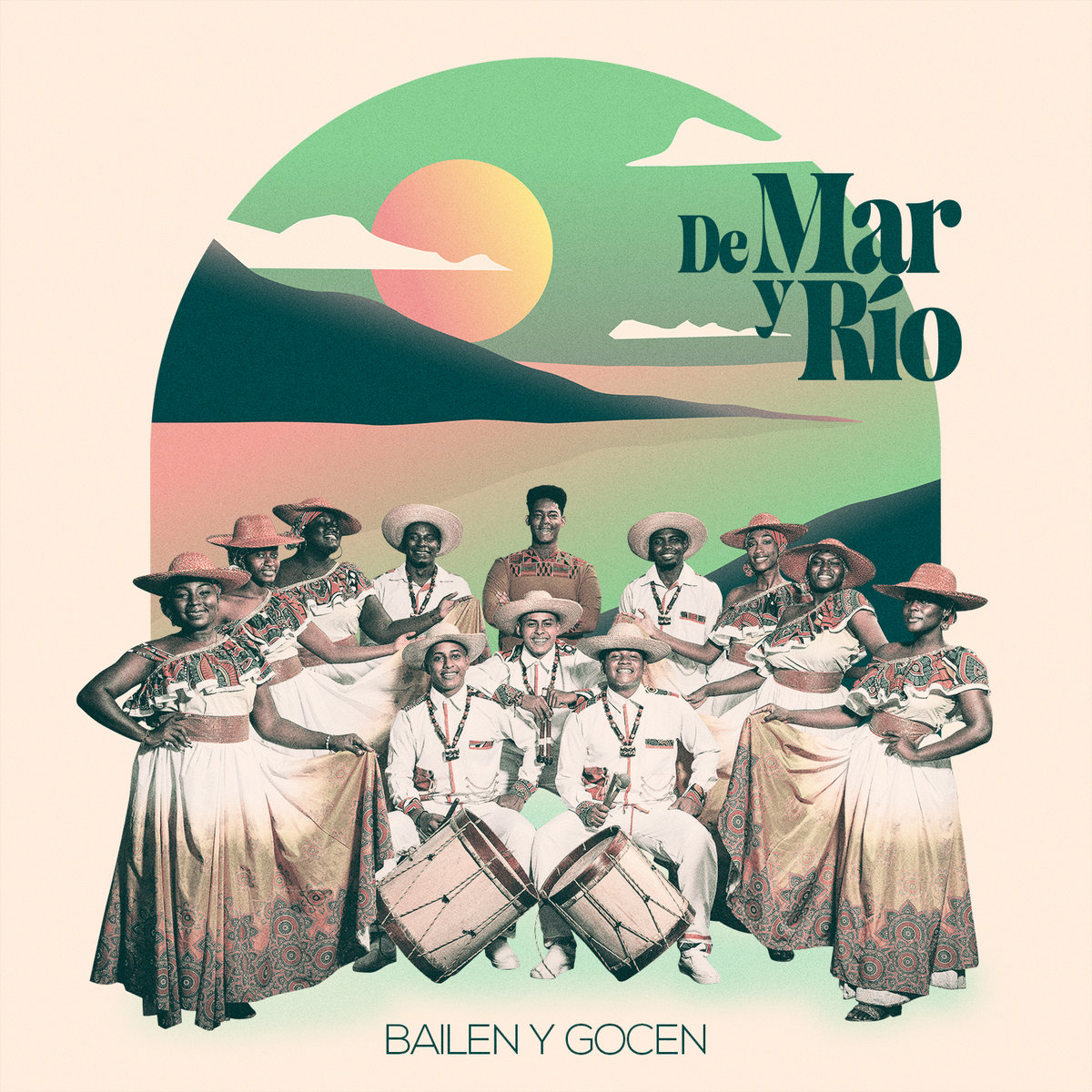
|
-
The sound at the heart of De Mar y Rio's Bailen y Gocen is the marimba - two musicians playing interlocking rhythmic patterns, with different lead singers, backing vocals and other percussion. The music is from the Pacific coastal region of Colombia and is played by a group of young performers who came together while studying in the city of Cali. Their musical mentor was Felipe Amú and he has been the guide for the direction they have taken since. All the tracks here are original compositions but they draw directly from the local traditions, with dance rhythms such as bunde, juga, currulao, and rumba.
Read Mike Adcock's review, listen to some tracks and see a concert video of the ensemble in action.
|
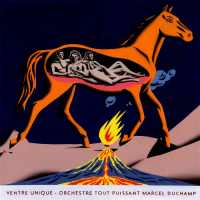
|
-
Feeling tired and worn down with the suck of modern daily existence? Do you need a pick-me-up that is clever, kind, and unabashedly something so idealistic and non-commercially viable it can only be art? I have something for you: how about a truly collective anarcho-big-band concept album singing about the importance of interconnectivity? How about a Utopian art project that sings of the now and suggests other, better possibilities?
Orchestre Tout Puissant Marcel Duchamp’s latest recording, Ventre Unique, is a mood-elevating sonic boost that also addresses the issues and ills of the now in a satisfying complex blend of genres including punk, afro pop, jazz and beyond. Listen, and read Martha Willette Lewis' review.
|
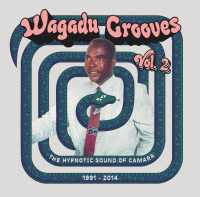
|
-
Wagadu Grooves Vol .2- The Hypnotic Sound of Camara 1991- 2014 features tracks from Francophone West Africa’s Paris-based diaspora and the sounds they created using the city’s state-of-the-art recording facilities. Like the first volume, these recordings are a celebration of Gaye Mody Camara, entrepreneurial shop owner and audio cassette production visionary, the format in which these recordings were initially released. Wagadu Grooves Vol .2 concentrates its focus on musicians originally from Mali, who have made up a large portion of Paris’s expat music scene since the 1970s. Included in this volume are artists such as Souley Kante, Sonikara, and Bande Kone, all cranking out hypnotic dance music that often uses the harp-like kamalen ngoni as its pulse.
Read Bruce Miller's full review and listen to some of the tracks.
|

|
-
Karolina Węgrzyn is a UK-resident Polish singer and instrumentalist who has gathered around her an able and sympathetic group of British musicians. Most of the material on this, her first album, is from Polish tradition, plus one Macedonian song, a couple from the Rusyn people, and the title track, "Oy Vesna Krasna," is from Ukraine.
She’s a fine singer, her voice moving between Carpathian mountain edginess and something softer. The arrangements, featuring violin, woodwinds, guitar, double bass and her own accordion and hammered dulcimer, have plenty of variety and elegant, mid-to-eastern-European flow and time signatures...
Read Andrew Cronshaw's full review and listen.
|
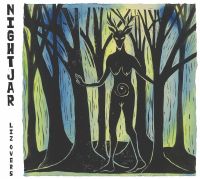
|
-
There’s a gentle flow to the first solo album from Liz Overs, a sense of movement across space and time around her native Sussex coast in England. NIghtjar is an album filled with stories, some old, others from her own pen, music and tales weaving together to capture the world through her eyes... You can almost smell the salt air as Overs takes you by the hand and leads you through her part of England.
Read Chris Nickson's review and listen.
|
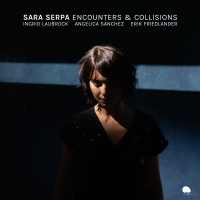
|
-
We feel we know others, but they are mostly utterly unknown to us. and we to them. The lyrics on Sara Serpa’s new album and comic book Encounters and Collisions are a bridge into very intimate wisps of private thoughts, the inner dialogue we share only with ourselves.
In an effort to provide some orientation to this album, it manifests as recorded performance art, with short spoken stories interwoven with glistening vocals, saxophone, piano and cello. It is a reflection pool of glorious thought, but also real insight, a deep dive into the subterranean space of Serpa’s mind, gliding toward empathy, gliding toward understanding the immigrant experience. A million news stories are not as powerfully moving as this album’s brief lyrics and illustrations.
Lisa Sahulka takes you through this illustrated, musical journey
|
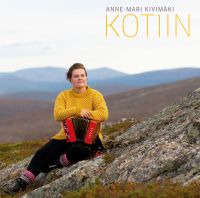
|
-
Anne-Mari Kivimäki has been a fixture on the Finnish music scene for a number of years, an accordionist known for playing what she terms trance folk as a solo artist, as well as being part of experimental outfits. Known as both composer and performer, she spreads her wings a little with Kotiin, inviting an international cast of performers, and recording in Iceland and Estonia, as well as much closer to home in Finland. This is an album with a purpose, built around the wartime notebooks of one of her relatives. Digging into them and discovering his experiences led her to editing a book based on the entries, coinciding with an exhibition about them. They inform so much of what’s here.
Read Chris Nickson's review and listen.
|
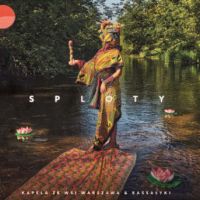


|
-
Poland is a big country, with a range of regional traditional musics, including those of long-established populations with origins in the cultures of the seven other countries surrounding its present borders. In recent years, mainly since the dawn of the digital age of CDs and sound files, more aspects of that patchwork of traditions have been represented in recordings.
Andrew Cronshaw delves into three quite different recordings by artists taking both ancient and modern approaches to old songs:
Kapela ze wsi Warszawa (The Warsaw Village Band)
Radical Polish Ansambl
and Maria Siwiec.
Read Andrew's review and hear some music and video from their latest releases.
|

|
-
We've been covering some great Polish music this month, and here's another to hear. Daj Ognia is one a radio listener tipped me off to, a band with roots in both Poland and Scandinavia. This is from their 2023 album, Przednówek.
Siwy kon, siwy kon,
Na siwego siadom,
A swojego dam dziadom
Gray horse, gray horse,
I'll sit on the gray one,
And I'll give mine to the grandfathers
Released 2023
|
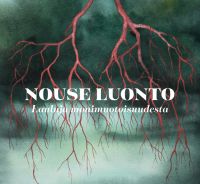
|
-
Nouse Luonto (Songs of Nordic Biodiversity) - a compilation of Finnish folk artists performing music around the theme of nature, is far better than such a dry title might hint. But in a country that still has so much wildness and caught in a changing world, it’s a topic close to everyone’s heart. Working in solo and small ensembles, singers, musicians and composers on the album include Antti Paalanen, Kimmo Pohjonen, Frigg, Esko Järvelä, Topi Korhonen, Maria Kalaniemi, Maija Kauhanen, and so many more.
Chris Nickson presents just a few of the many pieces on the album in his review.
|

|
-
Violeta del Carmen Parra Sandoval was born into a musical family in 1917, in Chile’s Valle Central....From a young age Parra learned and sang boleros, Peruvian valses, Mexican corridos, and Chilean cuecas. She sought the mentorship of traditional artists to develop a singular voice that would gain her recognition across Latin America. Parra’s life entailed a wide-ranging struggle against the poverty, paternalism, and sharp class distinctions of Chilean society, and the contradictory passions and sadness of her family and love relationships... Originally issued by RCA in 1966, Las últimas composiciones de Violeta Parra is a remastered, vinyl-only release of her final and arguably most famous recording. You can also watch a feature film about her life, "Violeta se fue a los cielos."
Michael Stone reviews, shares some songs and translates some of her poetry. You can also watch a feature film about her life, "Violeta se fue a los cielos."
|
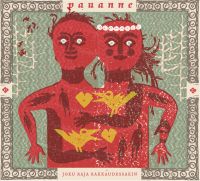
|
-
Mixing archival recordings with new music is hardly a novelty anymore, but on Joku Raja Rakkaudessakin (Even Love Should Have Its Limits) the Finnish ensemble Pauanne use them in inventive ways, on songs that explore the contradictory nature of love in people’s lives, illustrating them with old pieces from the Finnish and Karelian archives. Aided by seven other musicians, the second album by the band carries a crisp fullness.
Read Chris Nickson's review and listen to some of the music.
|

|
-
About a year ago, producer Ian Brennan returned to the notorious Parchman Farm prison to record participants at a Sunday service for a follow-up the 2023 release, Some Mississippi Sunday Morning, which garnered widespread praise for its completely raw gospel sound. A number of those who were involved in the first disc are back this time, for something laid down in a single four-hour session, with no guards present. Parchman Prison Prayer: Another Mississippi Sunday Morning is as stirring as its predecessor, with performances that well up from some deep place in the soul. Listen to some of their songs and read Chris Nickson's review.
|
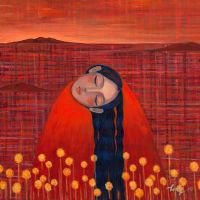
|
-
Welsh harpist Amanda Whiting works with classical and jazz artists in the U.K. She exploits the harp’s resonant sustain with a repertoire selected or composed to exploit the instrument’s unique qualities, with melodies and technique that avoid pummeling listeners with any of the harp’s parodic cliches. On her latest album, The Liminality of Her, Aidan Thorne (bass) and Jon Reynolds (drums) are the core trio with guest vocal and instrumentalists. Michael Stone reviews this and some other recent recordings by the artist.
|

|
-
The music of composer and vocalist Peni Candra Rini is rooted in Javanese traditions and those influences underlie much of her latest album Wani, just as it simultaneously subverts them. The sound of Javanese gamelan music has become familiar to many by now, but Rini's experimental approach stretches the limits of this musical tradition, taking it to unexpected places, the serenity of what was once court music being regularly gatecrashed by distorted electric guitar, crashing drum beats and wailing vocals. Yet almost invariably order is soon restored, a calm following the storm for a short while before things kick off again.
Read Mike Adcock's review and listen to the music
|
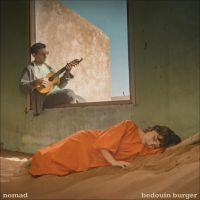
|
-
There are many ways to be homeless, stateless or a refugee. The songs on Ma Li Beit (I Have No Home) cast the Bedouins in the title role as the Middle Eastern nomads Lynn Adib remembers from her childhood growing up in Syria. Adib’s ability as a vocalist is a rare gift. Thousands of singers interpret songs but very few capture the song, hold the lyrics, tell the story, envelop you in the meaning... With Zeid Hamdan she creates an atmosphere of exile, loss, the feeling of a an untethered life. Hamdan, a Lebanese music producer and musician who specializes in electronica, hip hop and Arabic music brings a modern sensibility to the album with the guitar, bass and synthesizers. Together, they have created Bedouin Burger to present the collision of new ideas with the old.
Read Lisa Sahulka's review and listen to some of the music.
|

|
-
An artists' collective sprouts new music in Belgium
Piet Maris and Sarah Baur are a music, arts and life team in Belgium. Maris leads the ska-influenced and very street wise band Jaune Toujours. Baur is a film-maker and designer. Together they have nurtured a collective of artists and musicians called Choux de Bruxelles. It's a wide ranging, ever-curious group that gives life to the many cultures and vibes of the city.
Andrew Cronshaw sat down to talk with them about their own work, and the work of some of their cohort.
|

|
-
Best known as the leader and linchpin of Denmark’s Trio Mio, violinist Kristine Heebøll is also an accomplished composer in the Danish tradition, and, traditionally, Danish folk music is definitely music for dance. It originally took its inspiration from 18th century English music, so there’s a flowing lightness to it, the sense of swirling gracefully around the dancefloor and looking your partner in the eye. Producing music that can evoke that feeling and get the feet moving is a lot harder than it looks, though... Yet Heebøll has done it. For Bølgen she’s written pieces that are startlingly original, but hew close enough to the past to be very much part of the continuum. What truly sets this album apart is that her work is performed by four different ensembles that offer different shadings on the music, and by extension, the dances.
Read Chris Nickson's review and listen.
|

|
-
In the smallest, most silent voice that rises up in mystical jazz, there is a sense of there it is and there it is not" or an all that is seen and unseen vibe. You may notice it but only as it gently resides beneath the music, a sort of underworld that speaks in a murmur.
From this same deep well comes Nduduzo Makhathini – a sangoma – one who channels ancestors from the spirit world. Whether you believe this is possible or not, at its core there is a vibration in this music, an essence that sits in a space that is difficult to access and requires guidance to get there. On uNomkhubulwane, the South African pianist and composer is your guide.
Read Lisa Sahulka's review and listen.
|

|
-
This is something new and very different for Danish violinist/vocalist duo Helene Blum og Harald Haugaardd. They've had their band established for quite a few years, straddling a line between folk, prog and classical. But Ophav features the pair with just pianist Christoffer Møller, a stripped down trio that offers a heady mix of folk roots and art music. The instrumentation might be pared down, but the sound is remarkably full on Ensomhaden Synger (Loneliness Sings).
Read Chris Nickson's review and hear some of the music.
|
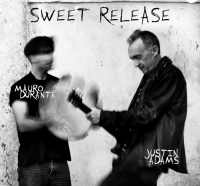
|
-
The Anglo-Italian duo of Justin Adams and Mauro Durante impresses critics, delights fans, and wins prestigious awards. Their music is a unique synthesis of diverse styles, Southern Italian, North African, Middle Eastern, blues, folk, rock ‘n roll. The sound is driven by rhythm yet rich in melody. The two musicians’ virtuosity dazzles, but their technical prowess is at the service of mood, atmosphere, and feeling. So writes George DeStefano about their 2021 recording together. Their new one "is even more seamless and captivating than their debut."
Read George's review of Sweet Release and a Q&A with Adams and Durante about the new recordings.
|

|
-
Before there was an internet and synthesizers and artificial intelligence, there was, well, everything. That’s the simpler world that Juana Luna explores on Canciones en Blanco y Negro. Born in Buenos Aires amid a family that loved Argentinian folk music, Luna moved to the U.S. at the age of 21 to attend the Berklee School of Music. Among her dreams was to follow the example of Juan Luis Guerra, who went to Berklee to study jazz but made a career of reinventing traditional music from the Dominican Republic.
Now 36 years old, Luna has released a spare, mostly-acoustic album where her love of folk music and the family stories of her youth began to rise to the surface.
Because both a friend and her grandmother told her she had a “voice from another time,” Luna said she thought: “Well, I have all the all these old songs, and some people tell me I have this old voice, so okay, maybe I’ll just embrace that and and do something kind of looking backwards and holding those sound textures of the past, and also the songs."
Read Marty Lipp's interview and hear some of Luna's new album.
|
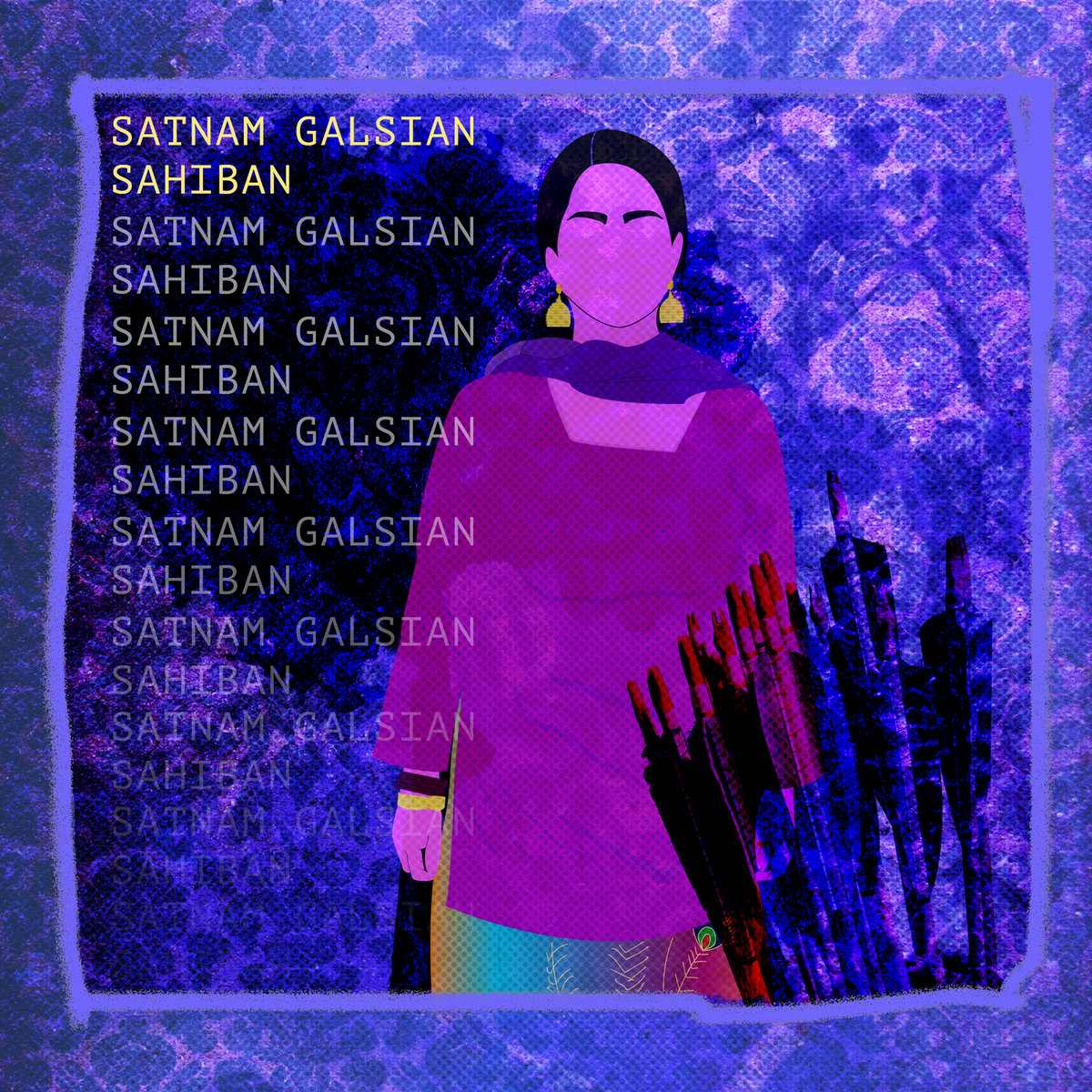
|
-
A little earlier this year, Anglo-Indian singer Satnam Galsian had a residency at Opera North in Leeds, and for it she composed this set of songs, working with poet Hafsa Aneela Bashir. Sahiban is a feminist re-working of "Mirza and Sahiban," one of the epic love stories from the Indian subcontinent. But where it was originally framed as a tale of woman's betrayal that resulted in the man's death, Galsian reclaims it, telling it from Sahiban's perspective, giving the woman her own, powerful voice.
Read Chris Nickson's review and listen to some of the music.
|

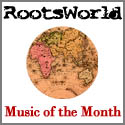
|
-
It's a year and a half since Simon Emmerson, the founder and guiding light of Afro Celt Sound System, died. But the band lives on, playing a fresh set of dates to coincide with the release of OVA, Emmerson's swansong with the group. It's a beautiful piece of work, and from the opening notes of "The Hawk Owl's Lament," which swoops and glides, rises and dives like the bird, everything is pitched just right.
It's a reminder of just what he achieved with Afro Celt Sound System, as well as all his other projects. He was the imagination behind them all, and the glue that held them together.
Read Chris Nickson's review and listen.
|
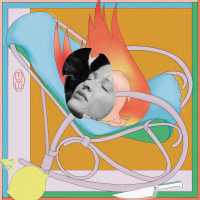
|
-
What on earth is "Haute-Couture Pop"? My brain is still chewing on that bit of promomotional phrasing as I listen to Ëda Diaz’s debut album, the sonic kaleidoscope that is Suave Bruta. Maybe they mean: lush, opulent, colorful? The result is deeply processed rather than acoustic - lots of aural collage and pulling and bending sounds. It has pleasing moments of Eda singing with her bass- and building from spare to layered with electronic pyrotechnics. Diaz, a French Columbian living in Paris, draws on multiple musical traditions and is by turns frenetic, bouncy, soulful, lyrical and always playful. It is rhythmically a lot of fun, with dance inducing, syncopated body-shaking tunes.
Read the review by Martha Willette Lewis and hear some of the music.
|

|
-
Ruca Rebordão was born in Angola, spent his adolescence in Brazil, and now lives in Portugal. This is his debut solo album. It draws on the rich musical traditions of the countries of his biography, and reflects the mix of people and musics in Portugal that spring from the strong cross-Atlantic connections between the Lusophone countries.
An album by a percussionist - won't it be all about rhythms and banging stuff rather than songs and melody? Well, not Mestiço Atlântico. Rebordão's wide range of percussion is more about pitch and contrasting textures than thud, and this is a varied and very attractive set of songs and instrumentals, the majority his own, with finely wrought arrangements featuring guest vocalists and instrumentalists with most of whom he's played over the years.
Andrew Cronshaw guides you though this varied set of songs and instrumentals.
|
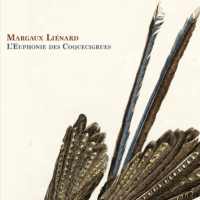
|
-
Here is an unexpected French delight of strings, a true euphony in pursuit of a mythical bird. The brainchild of hardanger fiddle player Margaux Liénard, it’s brimming with melodies that echo quite a few cultures and countries (“Polka Van Elwijt” receives a frisky treatment with a few overtones of klezmer along with goofy whistling birdcalls) from an exquisite string quartet. The compositions on L'Euphonie Des Coquecigrues are sophisticated and demanding, and full of surprises.
Read Chris Nickson's review and hear the music.
|

|
-
A new Lo’Jo album is always a source of surprise and delight. There’s a sense of anticipation, wondering just where they’ve been on their musical travels and what they’ve brought back with them. That beauty of the new is carefully layered with a sound that’s ineffably theirs, built around Denis Péan’s gruff sprechgesang mixed with the glowing sororal harmonies of the El Mourid sisters. Along with violinist Richard Bourreau, they form the core of the band alongside bass player Alex Cochennec. Over the course of several decades they’ve created and refined something unique, the arrangements growing from the early ramshackle explorations into something complex and sometimes even lush.
Read Chris's review and hear some of the music on Feuilles Fauves.
|
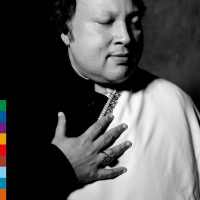
|
-
Discovering a lost Nurat Fateh Ali Khan album is a very big deal. He was more than the best-known Qawwali singer, he was one of the world’s greatest vocalists, whose voice could take wing on flights of ecstasy. He was already a massive star to many by 1990, when Chain Of Light was recorded in a single day with producer Michael Brook. Khan was carrying on what had essentially been the family business for six centuries. The great beauty of this is that the album captures him at his very traditional peak. The sound is crystalline, and once Khan is airborne, his voice is heart-stopping.
Read Chris Nickson's review and hear some of the music.
|


|
-
The bouncing rhythm of ska makes a good vehicle for the delivery of lyrics. It gives a strong, upbeat dance impulse with plenty of space for the words to be prominent and resonate. A prime example of that by non-West-Indian musicians, here in the UK, is the very London band Madness; in Belgium it's the very Brussels band Jaune Toujours. Whereas Madness has piano, guitar, bass, drums and sax surrounding witty vocals, the sound of Jaune Toujours is of a tight melding of brass and accordion, with no guitars or keyboard. Its lineup is horns, soprano sax, clarinet, bass, drums, and the warm, slightly husky voice of Piet Maris. The lyrics Maris writes are largely in French or Dutch, the two languages most spoken in Belgium, though for this latest album they're in French and English, often switching between the two within a song. Propelled by this appealing, dance-motivating music, Vertigo is a rallying cry, the songs are slogans for a better world, which has been a theme of much of Jaune Toujours's output over the years.
Read Andrew Cronshaw's review, see a video and hear some of the tracks from the album.
|

|
-
Parlour songs were the sentimental – often outright maudlin – ballads so beloved in Victorian times, when most families with enough money had a piano and at least one person who knew how to play it. They were more wholesome than music hall songs, the PG-rated pop of their times, and the sheet music sold like hotcakes in a pre-recording era. Jon Boden, probably still best known as the frontman of Bellowhead, wanted to explore the area where folk songs and parlour ballads meet in an album that gives him chance to play more piano. So far, so good, but in the end, while he and his band give the material a lush treatment, very little of it has actually come out of the parlour. What we’re mostly hearing are folk songs, like the opener “On One April Morning,” which was collected in 1908. It’s a lovely, heartfelt version, in the style of a parlour song, but bringing a very different history with it.
Read the review and hear some of the music from Jon Boden & The Remnant Kings' Parlour Ballads.
|
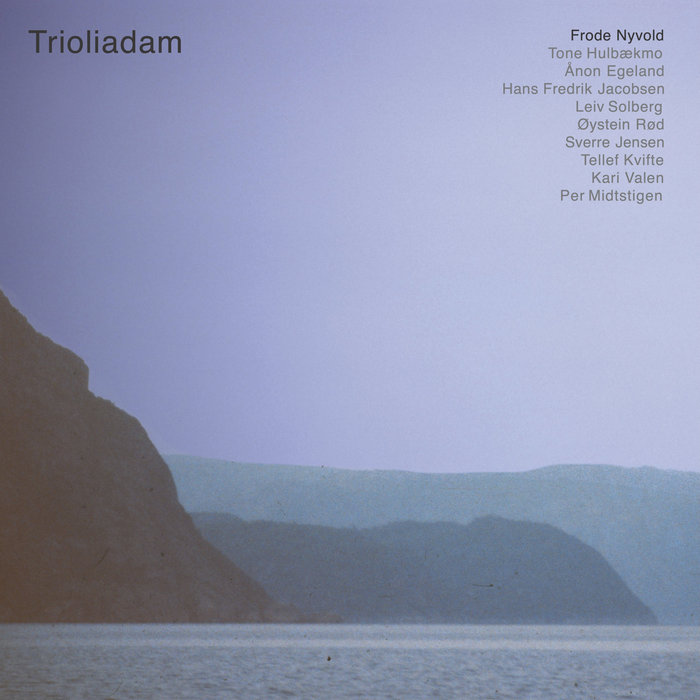
|
-
There's something satisfying about learning of a recording made decades earlier being rediscovered when it had been presumed lost. Trioliadam (Taragot Sounds) was recorded in 1981 on a farm in the east of Norway over a period of three days, but was never released, Fortunately a rough cassette mix survived and, with some improvements having been made to the sound quality, the album has finally seen the light of day.
The musicians on the recording were originally brought together by singer Frode Nyvold. He is joined on a collection of traditional tunes and songs by Leiv Solberg, Hans Fredrik Jacobsen, Ånon Egeland, Øystein Rød, Per Midstigen and others, on a variety of instruments and vocals.
Listen to some of the music and read Mike Adcock's review.
|

|
-
Bashkortostan, in the southern Urals, is a republic of the Russian Federation. Bashkir songs have strong, wide-ranging melodies, and there are many fine singers. The ever-growing Antonovka Records series of digital albums includes 15 recorded in 2023 in the villages and towns of Bashkortostan. Five of those, part of another, and one from earlier in the Antonovka catalogue, are devoted to specifically Bashkir traditional music, both vocal and instrumental.
Andrew Cronshaw explores this music in his latest reviews.
|

|
-
Malcolm Jiyane's True Story is in part channeling his South African musical and political heroes who have departed this world. There is a moral authority to the music yet the sound is not so simple to describe and the theme not so easy to pinpoint. The tracks sometimes sound like a holy figure singing in deep meditation, other times, Jiyane’s trombone can sound like it is coming from the distant past. Most of the time the music is joyous in the way of South African music, but it catches at the back of your throat. There is more than sadness in the joy. To borrow a title from Abdullah Ibrahim, this is water from an ancient well. Lisa Sahulka introduces you to the musician and composer's new Tree-O.
|
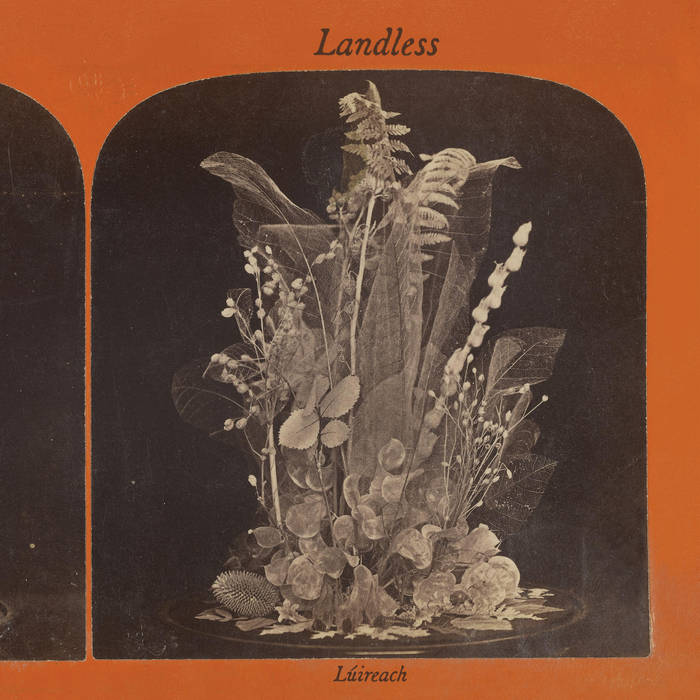
|
-
There’s no doubt that Irish music is currently enjoying a grand moment, and Irish folk in particular is glittering and full of marvels. With artists like Lisa O’Neill, ØXN with their ventures into darkness, and Dublin’s Lankum as the standard bearers, Irish folk is in a fervor of musical adventure. It’s a good time for Landless to re-emerge, six years after their debut. Their sound on Lúireach is entirely their own, revolving around their four female harmonies and very spare instrumentation. The power here lies in that sparseness, originally nurtured by the Shape Note tradition, where austerity offers richness.
Chris Nickson reviews.
|
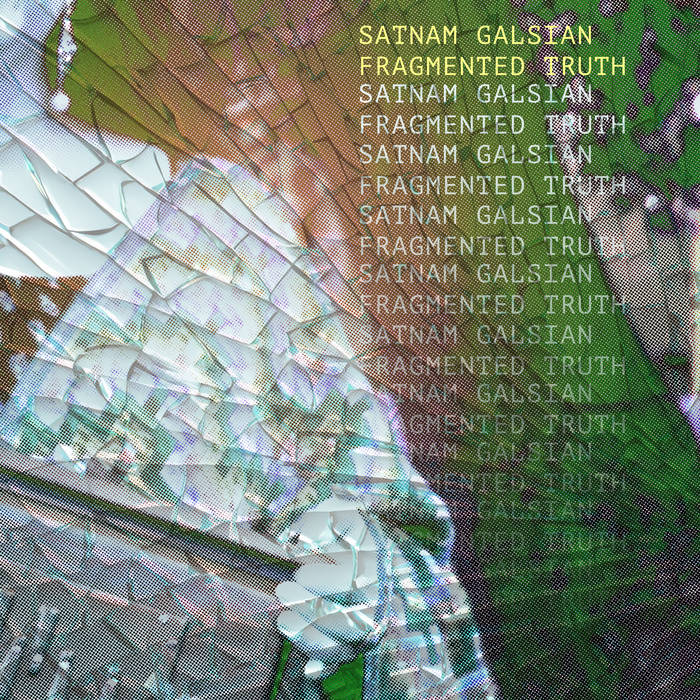
|
-
With her band, Kinaara, now seemingly history, English singer Satnam Galsian is starting to explore life as a solo artist, and doing it in a very stripped-back fashion: just her voice alongside Mark Volpe’s shruti box. But she’s still experiment and seeing where Indian and Western traditions can blend, as on the old Irish air “Lagan Love,” where her vocal ornamentation takes the traditional melody and weaves a lovely new tapestry. Fragmented Truth is a sure sign that Galsian has found her own voice and is using it to create something that’s pushing at the musical seams. Listen, and read Chris Nickson's review.
|
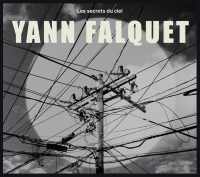
|
-
Andrew Cronshaw writes, "I’ve seen guitarist and singer Yann Falquet with Québec trio Genticorum in various places around the world. But his new album Les Secrets du Ciel, while still very much an aspect of Québécois music, takes a different approach. All the songs on the album are in French from the French-Canadian ballad tradition, found by Falquet mostly in books or archives. I try to avoid comparisons in reviews, but just to give an idea, the melodies and Falquet’s warm vocal and elegant guitar accompaniments sometimes remind of the solo works of France’s Gabriel Yacoub."
Read Andrew's full review and listen to some of the music.
|
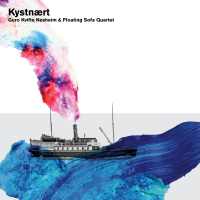
|
-
Truly a pan-Nordic project, this pairing of the Floating Sofa Quartet (Denmark, Sweden, and Finland) with Norwegian hardanger fiddle player Guro Kvifte Nesheim creates a kind of Scandinavia dream team. They’re not strangers – Nesheim subbed with the band three years ago – but this is their first planned project together. Kystnært highlights the connections between the music from the southern coast of Norway with other regional cultures, and Nesheim looked to master fiddler Ågon Egeland to help her research.
Given that the music moved between countries with boats and trade, it’s apt to begin with “Devil Among The Sailors.” The set kicks off with a Swedish polska before veering into variations on the tune from elsewhere that bring into focus the similarities and difference in styles.
Read Chris Nickson's review and listen to some of the tunes.
|

|
-
Roughly a decade ago, a Durban-based EDM/house-subgenre known as gqom (pronounced “gome”) emerged. Pioneered by such names as DJ Lag, Distruction Boyz and others, the music takes subtle elements from 1990’s house offshoot kwaito, snags some features from amapiano, gqom’s contemporary dance/pop music counterpart, and cranks the bass, minimalizing everything else, for stutter-y, dank club grooves. And the trio of Andile Mazibuko, Franco Makhathini, and Njabulo Sibiya- aka Omagoqa - have been spitting out single tracks and EPs at a ferocious rate since 2021. Umqhumo Wethu is experimental South African dance music at its most radical.
Bruce Miller reviews.
|


|
-
The hands-down winner for both wittiest title and album cover of 2024 - Proxy Music, is the very welcome return of Linda Thompson on her first proper solo album since 2013. Well, sort of. She provides the songs, either written alone or with others, but her voice only crops up once, among the backing vocalists on one track. No surprise, perhaps, given her longtime problems with spasmodic dysphonia that's so often prevented her from singing. But instead of trying to put herself front and centre on the recording, she came up with a very cunning plan using other singers - proxies. It turns out to be very much a family affair, involving son Teddy and daughter Kami, along with her son-in-law, grandson, ex-husband, and many other willing spirits joining in.
Chris Nickson's review concludes "Quite simply, it doesn't get any better than this," and the editor heartily agrees.
|

|
-
Upon touching down on the grounds of the Creative Music Studio in Woodstock, New York, Cyro Baptista began an ongoing adventure with jazz that changed him, not only musically, but as a person as well. It was 1980, and Baptista’s hometown, Sao Paulo, Brazil, was not yet percolating with the new explorations in modern jazz to come, and so this wildly exuberant percussionist set forth to chart new territory. Baptista found himself in the august company of co-founder Ornette Coleman, Don Cherry, Trilok Gurtu, John Zorn, Sun Ra, and his compatriota, Naná Vasconcellos. The Studio was a daunting challenge but an ideal setting to nurture his creative soul. Too, it was here where work and life became one, as Baptista experienced a profound commonality among his fellow musicians. “It was not like a school,” he told me in our April interview at his home in New Jersey, “It was a hang!”
Cyro Baptista talks with RootsWorld's Carolina Amoruso.
|

|
-
Portuguese singer, songwriter and musician Ana Lua Caiano’s first record has a narrative bent with each song acting as a short story. By turns melodic and cacophonous, she offers a pleasing debut. The whole project has a rich mix of layered sounds, experimental singing, and electronic music which plays with modern and traditional conventions.
Vou ficar neste quadrado is, by its tone and content, clearly the product of Covid lock down, a reflection of isolation, creatively keeping oneself company and carefully working away electronically. Strata of audio morsels are manipulated by Caiano, pushing the edges of what can be done by one person, and stressing tech and editing over live group dynamics. She plays, sings and does almost everything on the recording herself. There is a sharp focus on detail and a modestly scaled world that feels very apt for the lock down moment it was born in.
Martha Willette Lewis takes a deep dive into these new sounds from Lisbon.
|

|
-
The sight of a person hunched over a laptop hardly makes for an entertaining live gig; it can be like watching someone checking their emails. But as just audio laptoppery in conjunction with traditional music, done by someone who is sensitive and understands the form and its possibilities can sometimes be very effective and a liberation from standard instrumentation. And it certainly is here.
Vaev is the Danish duo of well-known fiddler Poul Lendal (of Lang Linken, Harpens Kraft et al.) who, as well as fiddle, here plays spoons, rummelpot (friction drum), seljefløjte (no-hole whistle) and jew’s-harp, and David Mondrup, who’s the laptopper but also contributes piano and other keyboards described as ‘with and without bellows.’
Andrew Cronshaw introduces you to their latest exploration, Sløjfen.
|

|
-
In the basement of a restaurant in the city of A Coruña, Galicia, we find fifteen guys in black shirts, black trousers, black trilbies. Eleven sing and play traditional hand percussion including pandeiretas (tambourines), cunchas (scallop shells) and tarabelas (split bamboo slap-sticks), the other four add gaitas, accordion, saxes, bombo (bass drum) and cymbals. Os do Fondo da Barra (literal translation: ‘The ones at the bottom of the bar’) is kind of like a male version of a female pandeiretera group plus instrumentalists. While being very much a lively present-day thing, not a historical exercise, the group reflects and draws upon the repertoires of the old Galician corales or coros, the singing, playing and dancing ‘grupos folkloricos’ on their new recording, BâNZô.
Andrew Cronshaw takes you there.
|
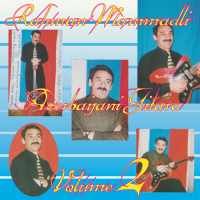
|
-
Mountains function as natural barriers between cultures, and the Caucasus region, a landscape squeezed between the Black and Caspian seas, serves as example of how this can be. Comprising Armenia, Azerbaijan, Georgia, and the Dagestan area of Russia, and framed by the Caucasus Mountains, these countries and regions act as a barrier between Eastern Europe and Western Asia. And needless to say, musical traditions connected to, but not exactly like their cross-continental counterparts, flourish. Stringed instruments such as the tar, the gopuz, the saz, and the avar tambur drive sometimes frantic, other times hypnotic classical Caucasus modal music known as mugham. So, when Jolana electric guitars, imported from what was then Czechoslovakia, became popular in the 1960s, musicians tuned them to quarter tones and deployed them to move the mugham into the latter half of the 20th century and beyond.
Rəhman Məmmədli, whose music relies heavily on traditional sounds from the Caucasus, is perhaps the leading example of electrified mugham, something the new collection Azerbaijani Gitara Volume 2 makes apparent. Using distortion to parrot Azerbaijani vocal styles and adding frets to better achieve traditional accuracy, his music overflows with intensity and mountain-swept power. Check out “Uca Dağlar Başında” to hear it. The tune begins with his guitar, playing a suspected chord over a subtle synth bed, the piercing high tones echoing as off the mountains themselves before the canned rhythm track kicks in, adding chords for him to flit between, his guitar tussling with itself, scaling heights and plummeting to cavernous depths.
Read Bruce Miller's review and hear some of the music.
|


|
-
If you’ve heard any maloya music from the Indian Ocean island of Réunion, the chances are it brings to mind a characteristic rhythm played on percussion, and probably an image of today’s best-known maloya musician internationally, Danyel Waro, energetically shaking his rectangular flat kayamb shaker. Ann O’aro’s third recording isn’t at all like that, even though she’s toured with Waro, and his son Bino is the percussionist in her band, along with trombone player Teddy Doris and electronic manipulations by Brice Nauroy. Bleu is an album far from the usual, far from what’s generally thought of as maloya, and indeed music that wouldn’t immediately be identified as from Réunion. For both Ann O’aro and the music of Réunion, it’s quite a step, and an interesting one.
Read Andrew Cronshaw's review and listen to some of the music.
Bleu is our June, 2024 selection for Music of the Month. Subscribers will receive the recording along with new music each month. Find out more and consider subscribing to support RootsWorld
|
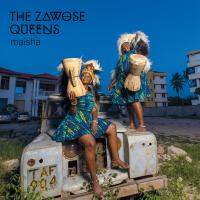
|
-
Part of the Wagogo tribe, the Zawose family are the most internationally recognized group of musicians from the hilly Dodoma region of Tanzania, and they are masters of Gogo music, which not only incorporates chizeze, musical bow, and ilimba (sanza/mbira), but also includes haunting choral vocals as well as dance. And The Zawose Queens, a duo featuring the late Hukwe Zawose’s daughter Pendo and his granddaughter Leah, are making their debut on Real World, the same label that recorded their father 28 years ago. Maisha has its roots in Wagogo legitimacy.
Read Bruce Miller's review and listen to the music.
|
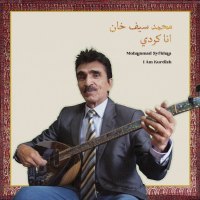
|
-
Kurdish Syrian Bouzouki player Mohammad Syfkhan now calls Ireland home, after fleeing the war in Syria in 2011. The record, which features his electrified bouzouki, sometimes accompanied by cello or saxophone, weaves over a canned rhythm section and is deliriously infectious. The rhythms conjure limitless expanses. There are undertones of Egypt here, occasionally the speed of dabke from Syria?s Houran region there. Needless to say, this debut is long overdue. With nary a duff track in the mix, Syfkhan wraps his bouzouki around the programmed percussion in a way that makes at least some of what?s here ready for the dance floor. But he never lets go of the music?s romance.
Read Bruce Miller's review and listen to some of the music.
|
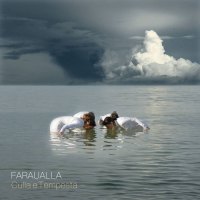

|
-
Acapella singing is the poetry of sound at its purest form. It is naked. This undressed music can sound like an orchestra in the right hands. Faraualla is a female vocal quartet from Apulia, Italy, formed in 1995. Their music is ethereal at times but also has the vocal rat-a-tat-tat sound that creates urgency and rhythm. The songs on their 2024 release Culla and Tempesta ('Cradle and Storm') speaks to our transgressions against nature and the impact it has on sea life and on our children who will suffer the consequences.
Lisa Sahulka introduces you to a vocal group of unique talents and power.
The album is our May 2024 selection for Music Of The Month. Subscribe, and get this recording as our thank you for supporting RootsWorld.
|

|
-
Zosha Warpeha's debut solo album Silver Dawn features her playing a Hardanger d'amore as well as some vocalisation. The Hardanger fiddle is most closely associated historically with the viola d'amore, itself a baroque instrument, usually with six or seven played strings. Warpeha's hybrid instrument has five bowed strings plus five sympathetic strings resonating below the top ones.
From the outset we are reminded of Norwegian fiddle music, not just by the distinctive sound of the fiddle but in the way the pieces are structured... Warpeha has taken the structural characteristic of the older Norwegian fiddle music and used these as building blocks... However, despite her indebtedness to these Nordic influences this record does not sound like Norwegian folk music. Having used that as a reference point, Warpeha, who lives in Brooklyn NY, has succeeded in producing a sound which is very much her own.
Mike Adcock reviews and you can listen along.
|
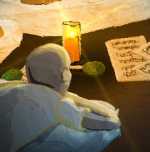
|
-
88 Well-Tuned Drums opens to a darkened screen and a deep-voiced invocation: “Maferefun Ogun, Mareferefun La Ocha.” A faint light then appears, revealing a gracefully moving hand with long, slim fingers, its wrist cuffed in cowry shells. A cardboard-like silhouette emerges now of a young boy facing a cavern brightly illuminated with red and yellow light... The hand belongs to Omar Sosa, and the image is of a young Sosa, about to begin his life’s journey as a pianist, percussionist, composer, and bandleader. Sosa’s story is told with warmth and intelligence in Soren Sorensen’s documentary film.
Read Carolina Amoruso's review of this remarkable documentary.
|

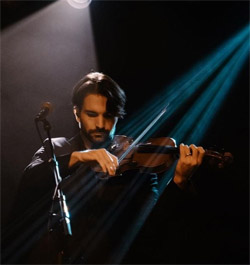
|
-
Mauro Durante and Antonio Castrignanó, preeminent figures in Salentine music, have launched an exciting new project that celebrates their cultural heritage while taking it to a new level. Their brainchild, the Super Taranta Orchestra, is an ambitious ensemble whose 12 musicians and three dancers comprise many of the foremost artists in Salento’s pizzica music and dance.
Durante, the leader of Canzoniere Grecanico Salentino (CGS), the Lecce-based, internationally renowned pizzica ensemble, and Castrignanó, a singer, percussionist, and composer who leads Taranta Sounds, first discussed forming Super Taranta in 2022. Together, they shaped the concept and form of the orchestra. Then, they spoke with the artists they wanted to involve and began rehearsals. All the members of CGS and most of Castrignanó’s Taranta Sounds are part of Super Taranta.
Read George De Stefano's interview with Mauro Durante and Antonio Castrignanó.
|
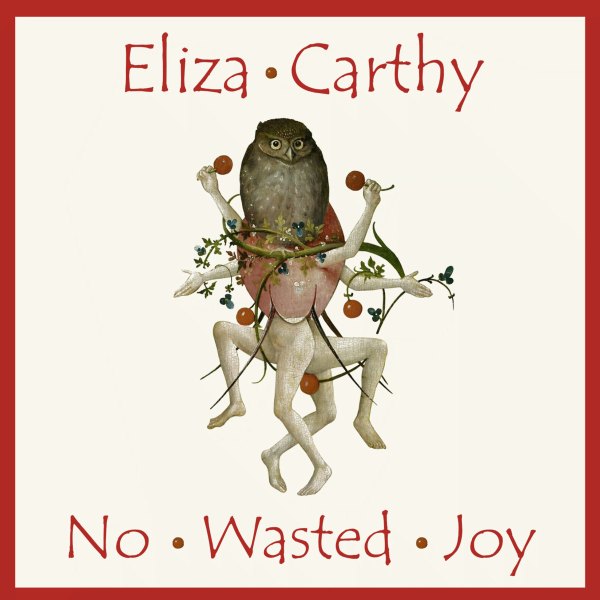
|
-
There's no doubt that Eliza Cathy has folk music in her DNA; after all, her parents are Martin Carthy and the late, much-missed Norma Waterson. But that background alone was no guarantee that she'd turn into the towering, adventurous musician she's become, constantly pushing new ideas But on No Wasted Joy, she strips everything all the way back to simply voice and fiddle. The result is a stark, wondrous window into her talents.
Chris Nickson reviews and you can listen along.
|

|
-
Labels Analog Africa and Soundway have done some of the most exhaustive work in reissuing essential music from sub-Saharan Africa's 1970s golden age, radically expanding western heads' knowledge of how prolific and groundbreaking the music was. Two new collections, from each of these labels, look at the music through a new lens:
Congo Funk! - Sound Madness From The Shores Of The Mighty Congo River (Kinshasa/Brazzaville 1969 - 1982)
and Ghana Special 2- Electronic Highlife & Afro Sounds In The Diaspora- 1980-93.
Bruce Miller reviews.
|

|
-
The record label calls it 'dream folk,' but there’s plenty of crunch and bite to the music in the debut from Alterne, an ensemble from Denmark, Belgium and Estonia who met while studying at the Sibelius Academy in Finland – about as much of a mish-mash as you can find. Ida Marie Jessen composes the outstanding music (playing violin and kantele), but all three can explode with fire and passion... The trio have made an astonishingly assured, ambitious debut, and created a unique, pan-European sound.
Chris Nickson reviews.
|
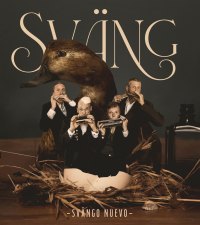
|
-
Sväng has been one of the Finnish folk scene’s most notable exports over the twenty years of its existence... Perhaps the idea of a harmonica quartet might evoke some kind of music-hall novelty act, but Sväng is a combo of amazing skill and creativity making a big, fat, complex sound using only harmonicas, from the familiar diatonic blues type and chromatic through double-sided and the keyed Harmonetta to big chuffing bass. Bass harmonica isn’t acoustically very loud, but its beefy deepness in the ensemble... Their tenth album, Svängo Nuevo, also sees the introduction of an extra tone color from a new Suzuki instrument, the Cello Bass low-tuned chromatic harp.
Andrew Cronshaw reviews.
|

|
-
Here it is, the odds and sods from Tiger Moth, the band that gleefully trampled all over English ceilidh music in the 1980s and introduced it to sounds from around the globe. Ostracon collects the tracks from the two LPs they released that didn't make it on to the Mothballs best-of collection, and adds on a 2004 track from the band's reunion in 2004. You've never heard the old-time banjo frailing track "Soldier's Joy" sound like this before, and who can resist something titled "Hunt The Goat"? Much more besides to send you crashing round the living room and breaking the lamps as you dance.
Sound Bites is our collection of short reviews, and well, sound bites.
|
Browse more reviews from
2024
2023
2022
2021
2020
2019
2018
2017
2016
We Interupt Our Regularly Scheduled Magazine For This Important Announcement.
RootsWorld cannot survive without the support of our readers. If you want to hear great music and read great writers, then we need each listener and reader to contribute just a little to make it happen. Please join us!
Please contribute to our survival.
About RootsWorld: RootsWorld is a world music magazine started in 1993, pretty much at the dawn of the term "world music" as well as the pre-dawn of internet publishing (I suspect this was the first music magazine of any sort published on the www). Our focus is the music of the world: Africa, Asia, Europe, Pacifica and The Americas, the roots of the global musical milieu that has come to be known as world music, be it traditional folk music, jazz, rock or some hybrid. How is that defined? I don't know and don't particularly care at this point: it's music from someplace you aren't, music with roots, music of the world and for the world. OK?
All pages at RootsWorld are © 1992-2025 RootsWorld/ Cliff Furnald / FNI Multimedia Publishing, New Haven CT
The RootsWorld name is protected by US trademark law.
All picture and sound images are the property of the artists and record labels, and are protected by copyright. No file or part of a file may be used for any purpose, commercial or non-commercial, without the express written consent of RootsWorld or the other copyright owners.
About the use of sound files and copyright protections at RootsWorld
|
